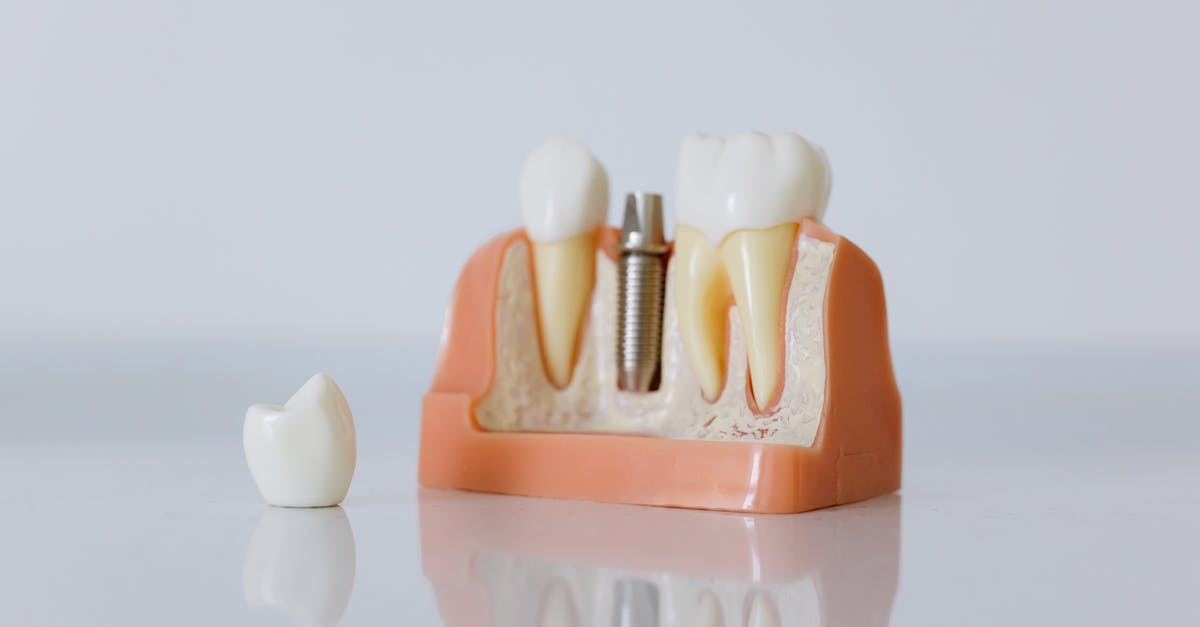How Proper Aftercare Can Prevent Implant Complications

Table Of Contents
Regular Dental Check-Ups
Routine dental visits play a critical role in the success of dental implants. These appointments allow dental professionals to monitor the health of the implants and the surrounding gum tissue. Regular check-ups help identify any potential issues before they escalate, ensuring a proactive approach to dental care.
During these visits, dentists can assess the fit and function of the implant. X-rays may be taken to evaluate bone integration and overall stability. Early detection of problems such as infection or peri-implantitis can lead to prompt intervention, significantly reducing the risk of complications.
Importance of Professional Assessments
Regular professional assessments play a crucial role in the success of dental implant procedures. These assessments allow for early identification of any potential complications. Dentists can monitor the healing process, ensuring that the implant integrates properly with the jawbone. Routine check-ups provide an opportunity for professionals to address concerns such as infection, improper alignment, or inadequate bone support before they escalate into more significant issues.
Furthermore, professional evaluations enable adjustments to the aftercare regimen tailored to individual needs. Dentists offer personalised advice on oral hygiene practices that can prevent complications. They may recommend specific products or techniques to maintain optimal implant health. Consistent oversight from dental professionals reinforces the importance of adhering to aftercare instructions for ensuring long-term success.
Avoiding Tobacco and Alcohol
Tobacco and alcohol consumption can significantly undermine the success of dental implants. Smoking restricts blood flow, which hinders healing and increases the risk of complications. The chemicals found in cigarettes also contribute to inflammation of the gum tissues, making it harder for the body to integrate the implant properly.
Similarly, excessive alcohol intake can lead to a variety of oral health issues. It can dry out the mucous membranes, impairing healing and encouraging infection. Furthermore, alcohol may interact negatively with prescribed medications during the recovery period, complicating aftercare and delaying the overall healing process.
The Impact of Lifestyle Choices
Lifestyle choices play a significant role in the success of dental implants. Smoking can impair healing by reducing blood flow, leading to increased risks of complications. Studies indicate that smokers face a higher probability of implant failure compared to non-smokers. Consumption of alcohol can also have detrimental effects. It can lead to dehydration and impact blood clotting, both of which are crucial in the post-operative healing process.
Dietary habits further contribute to the stability and longevity of dental implants. A balanced diet rich in vitamins and minerals supports tissue healing and boosts the immune system, which is vital for fighting off potential infections. Conversely, high sugar intake can promote oral bacteria growth, increasing the likelihood of complications. Maintaining a healthy lifestyle, therefore, is essential not just for oral health, but also for the overall success of dental implant procedures.
Managing Pain and Discomfort
Post-operative discomfort is a common experience after dental implant surgery. Patients may feel varying levels of pain, swelling, and tenderness in the affected areas. It is essential to manage these symptoms proactively to ensure a smooth recovery. Over-the-counter pain relief medications like ibuprofen or paracetamol are often recommended by dental professionals. Following the prescribed dosages can help alleviate discomfort effectively.
Ice packs can also play a role in managing swelling and pain. Applying an ice pack to the outside of the cheek for short intervals may reduce inflammation and numb the area, providing relief. Maintaining a soft diet and avoiding strenuous activities in the initial days following the procedure will contribute to a more comfortable healing process. Regularly monitoring any changes and communicating with your dental professional about persistent pain is crucial for a successful recovery journey.
Recommended Pain Relief Strategies
After the placement of dental implants, managing pain and discomfort is a key aspect of ensuring a smooth recovery. Over-the-counter pain relief medications such as ibuprofen or paracetamol may be recommended by your dentist. These can help alleviate mild to moderate pain. It is important to follow the dosage instructions provided by your healthcare professional. If pain persists or increases, contacting your dentist promptly is advisable.
In addition to medication, utilising cold compresses can considerably reduce swelling and provide comfort. Applying a cold pack to the outside of the face near the surgical site may help minimise discomfort in the first few days post-surgery. Resting and avoiding strenuous activities will also aid in the healing process. Staying hydrated and maintaining a soft diet can further enhance recovery while reducing the likelihood of triggering any pain or discomfort.
FAQS
How often should I have dental check-ups after getting an implant?
It is recommended to have dental check-ups every six months after getting an implant, although your dentist may suggest more frequent visits based on your individual needs.
Why are professional assessments important for implant care?
Professional assessments are crucial as they allow your dentist to monitor the health of the implant, ensure proper healing, and identify any potential issues early on, which can prevent serious complications.
How does smoking affect dental implants?
Smoking can significantly impair the healing process and increase the risk of implant failure due to reduced blood flow and the presence of harmful substances that can affect bone integration.
Can alcohol consumption impact the success of dental implants?
Yes, excessive alcohol consumption can interfere with the healing process and may lead to complications, so it is advisable to limit alcohol intake during the recovery period.
What pain relief strategies are recommended after getting a dental implant?
Recommended pain relief strategies include over-the-counter pain medications, applying ice packs to reduce swelling, and following your dentist's specific instructions regarding pain management.
Related Links
The Long-term Benefits of Following Aftercare GuidelinesUnderstanding the Role of Aftercare in Implant Health
Aftercare Strategies for Different Types of Dental Implants
Monitoring Your Implants: When Aftercare Becomes Critical
Connection Between Aftercare and Overall Oral Health
Essential Aftercare Tips for New Dental Implant Recipients